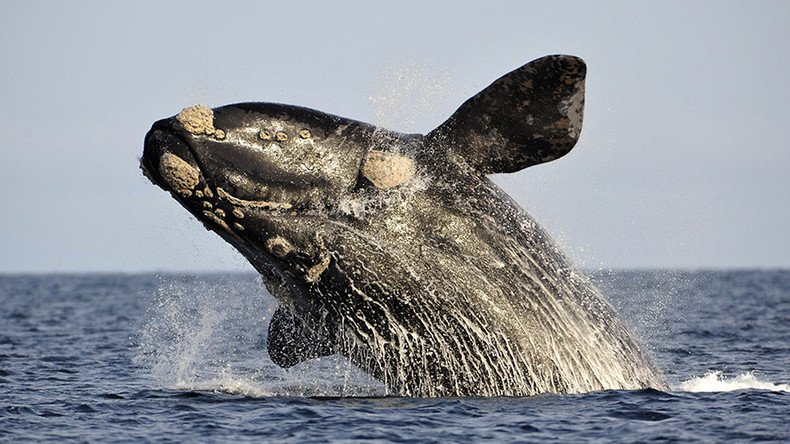Dr Doolittle effect: Dolphins & whales form human-like societies, study says

Whales and dolphins may be more like us than previously thought. While they are more comfortable in water than humans, they live in tightly-knit social groups, have complex relationships, and speak to each other, a new study suggests.
The major new wide ranging study, published Monday in the journal Nature, Ecology & Evolution, even suggested that our cetacean cousins (dolphins, whales and porpoises) even chat to each using a range of regional dialects.
Scientists from The University of Manchester, University of British Columbia, Stanford University in California and The London School of Economics and Political Science (LSE) collaborated on the project, which linked the complexity of cetacean culture and behaviour to the size of their brains.
The study compiled information on 90 different species of cetaceans to create a vast dataset of their brain size and social behaviors. Upon studying the data, the team found“overwhelming evidence” that they have “sophisticated social and cooperative behaviour traits, similar to many found in human culture.”
READ MORE: Underwater espionage? Hamas 'arrests' Israeli spy dolphin
“As humans, our ability to socially interact and cultivate relationships has allowed us to colonise almost every ecosystem and environment on the planet. We know whales and dolphins also have exceptionally large and anatomically sophisticated brains and, therefore, have created a similar marine based culture,”said Dr. Susanne Shultz of the University of Manchester.
“That means the apparent co-evolution of brains, social structure, and behavioural richness of marine mammals provides a unique and striking parallel to the large brains and hyper-sociality of humans and other primates on land. Unfortunately, they won’t ever mimic our great metropolises and technologies because they didn’t evolve opposable thumbs,” Shultz added.
Some of the similarities between humans and cetaceans include working together for mutual benefit, teaching others how to hunt and use tools, ‘talking’ to each other using ‘name’ recognition, and social play.












